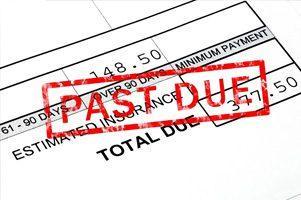6 Things Creditors Are Forbidden To Do To Get Their Money Back

When you are running a business, keeping a tab of all clients’ payments can be difficult. You probably are taking care of so many immediate concerns of yours and which is why you have missed the fact that some or one of your clients has not paid. Now, what should you do?
The best solution is to approach a professional credit collection agency in Houston, as they possess the required expertise, experience to deal with such issues, and know the things debt collectors are not allowed to do.
Contacting Credit Collection Services and Other Priorities
Extending services and products in credit is a regular norm in any business. Mostly it is done so that the clients can feel that the business association is good for them. But when it comes to the creditor, the payment is necessary to keep the cash flow undisrupted in the company so that the manufacturing process and the wages can remain on the right track. But if your debtor is not paying back, you need to connect with credit collection services in Houston. If you are in Houston and looking for a business collection agency, then come to us at Nelson, Cooper & Ortiz LLC right away.
While you are connecting us, there are certain things that you must not do. Take a look.
Don’t Delay in Connecting
At times, the creditor party believes that connecting with us or any commercial collection firm will ruin their business association. And as a result, they delay in that. Even though a business debt is valid for six years, make sure you are connecting with us before that.
Don’t try to call or Connect Outside Business Hours
Creditors are usually bound by the law limits of debt collectors. Hence, they are forbidden to do a lot of things, which include contacting debtors at unreasonable hours. So, no matter how much debt you’re sunk in, respect the debtor’s privacy and personal time, and contact them only between the 8 AM to 9 PM window.
Don’t Disclose the Debtor’s Actions Publicly
Disclosing a debtor’s private financial situation, that too publicly, in front of family, friends, or employers, is a direct violation of fair debt collection practices. Creditors don’t have the right to publicly shame or embarrass debtors to pressure them into payment.
Don’t Try to Extract Money that You Don’t Owe
It’s illegal for you to demand more money from the debtor than what you owe. And this extra amount includes excessive fees or interest that are not specified in the original agreement. Debtors have debt collection rights, and they can readily dispute inaccurate amounts. Therefore, only seek the outstanding balance, and maintain fairness in transactions.
Don’t Threaten or Behave Aggressively
There are many state and federal regulations that safeguard the debtors. That is why if you decide to go ahead and collect the debt by yourself, then you are probably making a mistake. Why? Well, there is a chance that you might lose your cool while dealing with the debtor. And if the debtor is aware of their rights, which they generally are, they might flip the case against you. Threatening, pressurizing or being aggressive with the debtor is strictly prohibited. That is why you should trust the professionals at collection agency services in Houston.
Don’t Sell It Off
We have talked about why selling off your debt is a bad idea in a blog. We are reminding you here again. Don’t sell off your debt. This way you will lose a lot of money and the firm that buys your debt will be the gainer. Also, if they pressurize the debtor by using your name after you have already sold off the debt, it can affect your reputation.
So, for professional support, come to us right away. For a free consultation, dial (800)939-7213 now or visit https://prelitigation.com/request-a-quote.
How do I file a complaint against a debt collector?
You have 3 options if you want to file a complaint against a debt collector. These include:
- File with the Federal Trade Commission.
- Contact the Consumer Financial Protection Bureau, which will forward your complaint to the debt collector and work to resolve the issue.
- Reach out to your State’s Attorney General’s Office by checking your state’s official website for contact details.
Make sure to document everything before you file. Keep all records of communications with the debt collector, including dates, times, and conversation details. This will bolster your case.
Frequently Asked Questions (F.A.Qs):
- What are some actions debt collectors are not allowed to take under the FDCPA?
The Fair Debt Collection Practices Act (FDCPA) states that debt collectors are prohibited from resorting to abusive, deceptive, or unfair practices. This includes
- Calling before 8 AM or after 9 PM
- Making threats of violence or arrest
- Disclosing details of the debt to friends or family
- Harrassing or using obscene language
Added to these, they also cannot misrepresent the amount owed or falsely imply they are attorneys
2. What regulations do state policies place on debt collectors?
State policies often supplement the FDCPA by placing some additional restrictions on debt collectors. These consist of-
- Licensing requirements for collection agencies
- Specific disclosure mandates
- Different statutes of limitations for debt collection
3. Can a debt collector contact others about me or my debt?
Debt collectors cannot contact your spouse, creditors, or attorney. They cannot discuss your debt with others, except to locate you or verify employment.
 Know More
Know More Know More
Know More Know More
Know More Know More
Know More